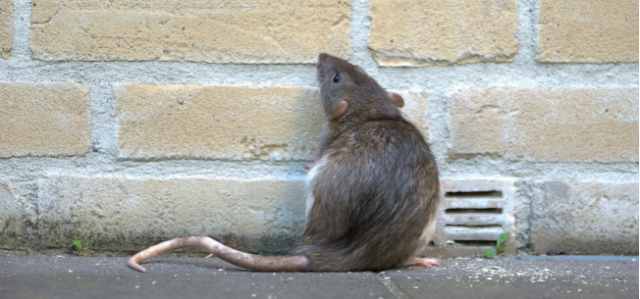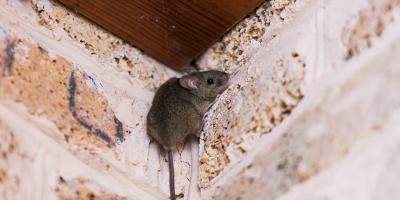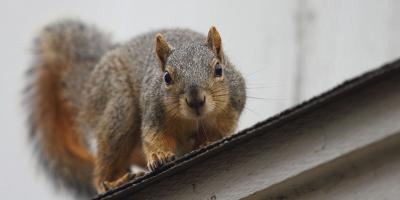7 Strange Facts Homeowners Should Know About Rodents

If the dog is man’s best friend, than the rat must surely be man’s most consistent rival.
Humans and rodents have lived side by side for thousands of years - and it’s been a pretty bitter battle for most of it. Rodents spread disease, steal food, and cause destruction, and this has led plenty of people to find ways to deal with rodents trying to share space. But while most people know a bit of basic info on rodents, there are a few key facts that remain relatively unknown - and knowledge is the pest expert’s greatest weapon.
Here’s a look at seven strange facts you likely didn’t, but definitely should, know if you’re facing a rodent infestation:
1. Mice eat all the time - up to 20 times a day
While most mice are generally small in size, they eat like champions - typically, around 15 to 20 times a day. It may not be much in any one sitting (all said, they only eat about 3 to 5 grams of food daily), but mice need to constantly replenish the energy they burn scurrying and gnawing all day. Fast metabolisms make for hungry bellies - and when you multiply the amount of mouths to feed by hundreds, the damage can build up. You pest expert will help identify food sources and do what’s necessary to keep mice from finding a reason to stick around for long.
2. Some mice can get pretty territorial
Families of mice tend to live together in a group, but this closeness hides a strict hierarchy among individual members - especially males. The typical male mouse has a well-defined territory, which they will regularly mark with urine and which they patrol on a daily basis. Individual rooms in your house may each belong to a mouse, so be sure to watch out for urine and try to act with the element of surprise. A pest management expert can identify these behaviors and take effective action before the situation gets out of hand.
3. Some rodents are everywhere, but some are endangered
Chances are, if you’ve seen a rodent in the past it’s probably been a member of one of a small number of common rodent species. Depending on where you live, the majority of rodents you’ll encounter are common rats, like Norway or Brown rats, or common mice like the House or field mouse. These rodents have achieved a near-ubiquitous status around the world, and are the main offenders when it comes to infestations.
However, plenty of wild mice still exist and play an important role in their environment, and some, like New Mexico’s meadow jumping mouse, are actually endangered due to habitat loss and competition from other species. Controlling the spread of other, more common rodents may help preserve the variety of rodent species typically found in nature.
4. Mice can slip through incredibly tight spaces
The frustration that comes with sealing up what you think is every crack, nook, and cranny of your house, only to find mice have gotten not much later, can be defeating. While it might seem like mice can pass right through walls, the fact is they simply can simply pass through what might seem like impossibly tight openings.
Generally, a mouse can fit its body through any opening that’s at least as big as its skull. The rest of the mouse body can squish, flatten, and slide just about anywhere - thanks, in part, to a mouse’s perfectly-shaped collar bone and relatively flexible ribs. Food is an amazing motivator, and a tight squeeze is no big deal for a hungry mouse. A Pest control expert can identify your home’s weak points and seal them up small enough that no mouse can make its way in.
5. The average rodent is a crafty foe
It’s not hard to think that any animal that lives in its own filth, chews electrical cords, and falls for a bait trap is not intelligent - but this is a pretty common underestimation. Mice, rats, and other rodents are actually surprisingly intelligent, and can learn and adapt to changes in their environment - meaning they won’t fall for the same trap twice. That’s why pest professionals use solutions that work the first time - that way, the rodents don’t have time to adjust.
6. Rats can swim for up to three days - and even through your pipes
For an animal that spends the majority of its life on land, the rat is a surprisingly capable swimmer - capable of keeping afloat for days at a time, and not afraid to explore tight and otherwise uninviting places. It’s been proven that rats can swim up a toilet pretty easily, and that pipes and plumbing can be an easy entryway for rats looking for a way in. A pest management expert can seal up these pathways and make it harder for rats to swim their way into your abode.
7. Mice don’t just eat cheese - and sometimes they eat mouse
If you grew up watching cartoons, you probably associate mice with one food and one food only: cheese. But despite this widely-held notion, mice actually eat a wide variety of foods, and don't particularly like cheese better than, say, a bit of bread or even some meat. In some cases, especially when stress is high and access to food is low, mice may even eat each other - a bit grisly, for sure, and a good reason to make sure your house stays as mouse-free as possible.
Don’t Let Your Home Become A Rodent Refuge
Once a mouse colony has made its nest in your home, it can be extremely difficult to get rid of. If you start to hear the scratching of feet in your ceiling, or you notice droppings or chew marks in hidden spaces, you’ll know it’s time to get in touch with JP Pest Services and get that rodent issue taken care of for good. Our professionally-trained rodent experts can identify, act, and eliminate rodents in your home safely and completely - meaning no more worries about what may lie just beyond the drywall.



